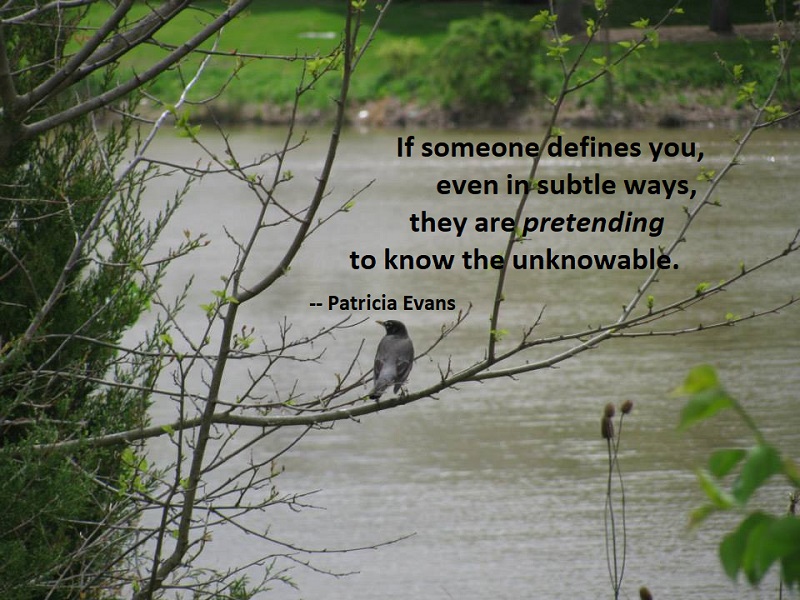
If someone defines you, even in subtle ways, they are pretending to know the unknowable. There is a quality of fantasy to their words and sometimes to their actions. Even so, they are usually unaware of the fact that they are playing “let’s pretend.” They fool themselves and sometimes others into thinking that what they are saying is true or that what they are doing is right.
When people “make up” your reality — as if they were you — they are trying to control you, even when they don’t realize it.
When people attempt to control you they begin by pretending. When they define you they are acting in a senseless way. They are pretending. . . .
We know that they are pretending because in actual fact, no one can tell what you want, believe, should do, or why you have done what you have done. No one can know your inner reality, your intentions, your motives, what you think, believe, feel, like, dislike, what you know, how you do what you do, or who you are. If someone does pretend to know your inner reality: “You’re trying to start a fight,” they have it backwards. People can only know themselves. It doesn’t work the other way around.
Since only you can define yourself, your self-definition is yours. It isn’t necessary to prove it or explain it. It is, after all, your own. Self-definition is inherent in being a person.
Despite the evidence, it is difficult for many people to realize that the person who defines them is not being rational. They feel inclined to defend themselves as if the person defining them were rational. But by trying to defend themselves against someone’s definitions, they are acknowledging those definitions as valid, that they make sense, when they are, in fact, complete nonsense….
Millions of people try to defend themselves from abuse and describe the altercations as arguments. Are they? I think not. I see them more as a struggle to retain one’s own reality when someone else has stepped into it.
— Patricia Evans, Controlling People, p. 58-59
[Photo: South Riding, Virginia, May 3, 2014]
